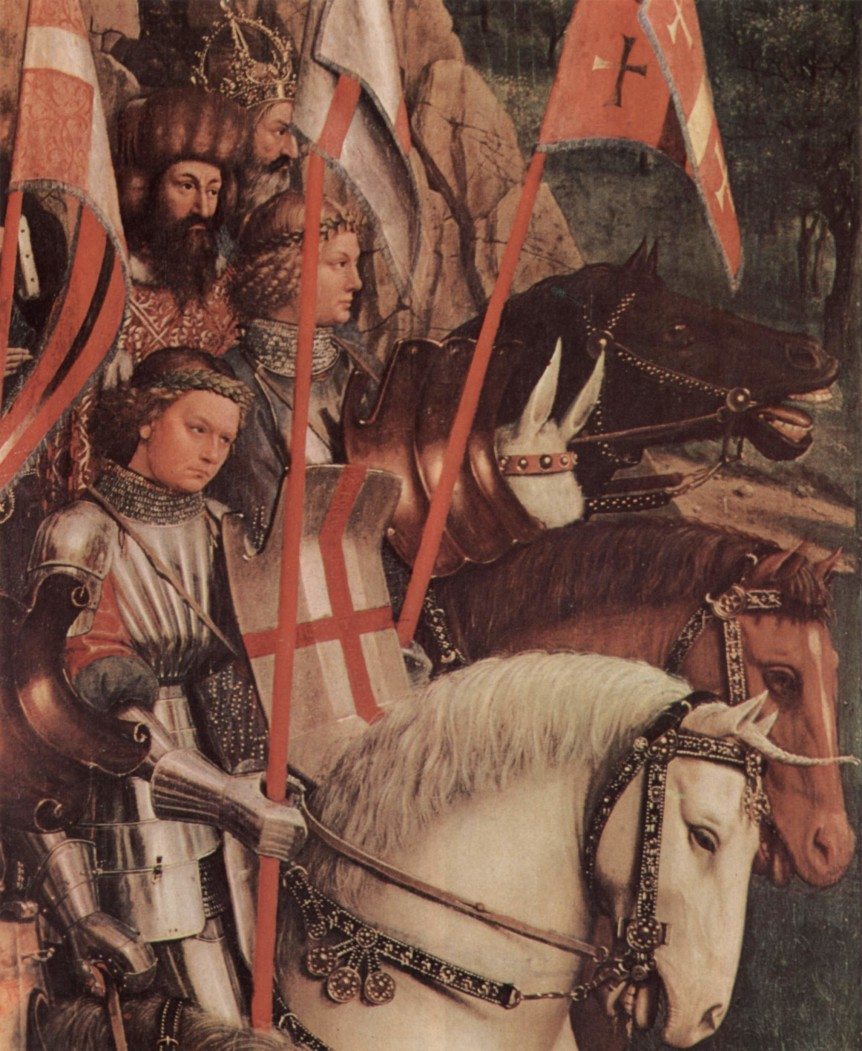In the Footsteps of Men of Heroism and Genius. Role of the Saints: Ignatians are Men who live close to the Saints, the “Knights of the Cross”
Devotion to the saints played an important role in the conversion of Inigo de Loyola. His upbringing in a noble Spanish family had imbued him with the chivalric view of the saints as heroes, men as courageous as any who donned armor and went on crusade; between these stalwart giants of the Ecclesia militans and the triumphant cruzading knights such as King Louis IX and Godfrey de Bouillon the differences were secondary.
Even amid the court-and-camp surroundings, the chivalric spirituality that imbued him enabled him to admire Francis of Assisi as a knightly warrior of the spirit. But it was at the hour of his conversion, on his sickbed at Loyola castle, that the example of the saints determined the course his life would take from then on. For want of anything else to read, the bored soldier picked up a collection of lives of the saints, Jacobus de Voragine’s The Golden Legend. Explain it.
Years later, in Rome, he remarked to Nadal, “At that period of my life I was filled with desire to do great things in the service of God, such as had been done by St. Onuphrius and other saints who gave themselves unreservedly to Him”. He identified with Onuphrius’s words to a visitor: “Ever bear in mind, as I do, what joy and glory those will enjoy in Heaven who have fought the good fight here on earth. My heart burns within me and my spirit bounds with joy at the prospect of giving up all earthly pleasures and of surrendering myself up to God with the whole energy of my soul”.
Along with the severely ascetic Onuphrius, an Egyptian monk, Inigo particularly desired to emulate St. Francis of Assisi and St. Dominic. The Golden Legend presented the latter as “a true servant and a brave knight who is traveling up and down the whole world” in order to win it for the Kingdom of Christ. Inigo wanted to rival these knights of the Cross, “to accomplish great and difficult things for Christ”.
Their histories fascinated him and led to that question that changed the course of his life: “What if I should do this which St. Francis did; and this which St. Dominic did? If they, Francis and Dominic, could do this, why not me? If they could achieve such difficult feats for the Eternal King, could not I? If they endured fastings and long journeys in service to God, might I not also be able?”
Their example gripped his mind and would not let go. Constantly he thought “St. Dominic did this, therefore I also must do it; St. Francis did this, therefore I too will do it”[2]. The dreams and ambitions of Ignatius for military and aristocratic glory were funnelled to the ambition to be Christ’s knight, one who would distinguish himself in the Heavenly King’s army by becoming like the crucified Savior through asceticism and winning others over to His adored leader.

